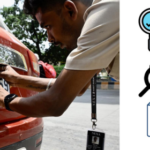Hafez’s Background and History
Hafez, a gorilla saved from the clutches of illegal wildlife trafficking, exemplifies the poignant intersection of cruelty and compassion that often defines the fate of endangered species. His rescue at Istanbul Airport shed light on the shadowy world of smuggling and the critical need for stringent conservation measures. Hafez’s journey from near peril to safety stands as a testimony to the perseverance of those dedicated to safeguarding wildlife and preserving the delicate balance of biodiversity.
The Significance of the Name Hafez
Hafez, a name rich with history and meaning, has roots in various cultures and languages. In Persian, “Hafez” translates to “guardian” or “protector,” reflecting the essence of safeguarding and caring for others. This name embodies a sense of duty, strength, and responsibility towards the well-being and safety of those under one’s care.
Across different regions and contexts, the name Hafez signifies a deep sense of trust and reliability. It inspires feelings of security and reassurance, invoking the image of someone who is steadfast and loyal in their role as a protector. Individuals who bear the name Hafez often strive to embody qualities such as resilience, vigilance, and compassion in their actions and interactions with others.
Understanding the Role of a Protector
Hafez’s journey as a rescued baby gorilla sheds light on the profound significance of protectors in safeguarding vulnerable beings. From the moment Hafez was saved from the clutches of illegal wildlife traffickers at Istanbul Airport, his story serves as a poignant reminder of the vital role protectors play in ensuring the well-being and survival of endangered species like gorillas. The tireless efforts of those who intervened to rescue Hafez speak to the selfless dedication and unwavering commitment required of protectors to confront and combat the threats facing wildlife today.
Challenges in Upholding the Legacy
Challenges in upholding a legacy often stem from the intricacies of balancing tradition with modernity. The pressure to maintain the essence of what has been passed down while adapting to contemporary demands can pose a significant hurdle for protectors. Furthermore, external factors such as societal changes, evolving values, and technological advancements can test the durability of a legacy, requiring protectors to navigate through uncharted territories to ensure its longevity and relevance.
Personal Reflections on Being a Protector
Hafez serves as a poignant reminder of the fragility of life and the critical need for guardianship. As a protector, the responsibility lies not only in safeguarding the physical well-being of others but also in nurturing their emotional and spiritual growth. The journey of being a protector is a continuous process of self-reflection and commitment to upholding values of compassion and integrity.
Reflecting on the role of a protector unveils the interconnectedness of all living beings and the profound impact of our actions on the world around us. It invites introspection into our own capabilities and limitations, challenging us to rise above adversity and be a beacon of light for others in times of darkness. A protector’s path is paved with challenges and uncertainties, yet the unwavering dedication to serve as a shield against harm fuels the unwavering resolve to carry on.
Learning from Hafez’s Teachings
Hafez’s teachings offer profound wisdom that transcends boundaries of species. His resilience in the face of adversity serves as a powerful reminder of the strength that resides within all beings. By observing Hafez’s ability to overcome challenges, we learn the value of perseverance and determination in navigating life’s difficulties.
Moreover, Hafez’s story sheds light on the interconnectedness of all life forms and the importance of compassion towards fellow beings. Through his journey of recovery and growth, he teaches us the significance of empathy, understanding, and care in building a harmonious and sustainable world. In essence, by learning from Hafez’s teachings, we are inspired to cultivate a mindset of kindness and stewardship towards the environment and its inhabitants.
Ways to Embody the Qualities of a Protector
To embody the qualities of a protector, one must cultivate empathy and compassion towards all living beings. By adopting a mindset of kindness and understanding, individuals can create a ripple effect of positivity and care in their surroundings. In being attentive and sensitive to the needs of others, one can proactively intervene in situations that require protection and support.
Courage and determination are essential qualities for embodying the role of a protector. It is crucial to stand firm in the face of adversity and advocate for justice and fairness. By demonstrating resilience and fortitude, individuals can serve as beacons of strength and inspire others to join in the mission of safeguarding the vulnerable and upholding moral principles.
Impacts of Protectorship on Relationships
The role of a protector extends beyond the immediate act of safeguarding individuals or entities. In the context of relationships, embodying the essence of a protector can foster a sense of security and trust. The presence of a protector within a relationship acts as a pillar of strength, offering assurance during challenging times and amplifying the bond between individuals.
Furthermore, the impact of protectorship on relationships can be profound, shaping dynamics and establishing a sense of unity. When one person assumes the role of protector, they demonstrate a willingness to prioritize the well-being and interests of their partner. This selfless act of guardianship can cultivate a deep sense of connection and reciprocity within the relationship, fostering an environment of mutual care and support.
Navigating Ethical Dilemmas as a Protector
Navigating ethical dilemmas as a protector can be a complex and challenging task. It requires a careful balance between upholding one’s duty to safeguard individuals or causes and navigating moral gray areas. Protectors often find themselves grappling with difficult decisions that test their principles and values, especially when faced with conflicting interests or circumstances that force them to choose between competing priorities.
In such situations, it is crucial for protectors to engage in thorough reflection and ethical deliberation. Consulting with trusted advisors or seeking diverse perspectives can help in gaining clarity and making informed decisions. By remaining open to feedback and considering the potential consequences of their actions, protectors can navigate ethical dilemmas with integrity and uphold the trust placed in them by those they protect.
Strategies for Maintaining a Legacy of Protection
Maintaining a legacy of protection requires steadfast dedication and continuous efforts to ensure the preservation of values and principles. It involves actively safeguarding the well-being of individuals, communities, or causes that are vulnerable to harm or exploitation. By upholding the legacy of protection, one commits to advocating for justice, safeguarding rights, and fostering an environment of safety and security for those in need. Consistency in actions, unwavering commitment, and adaptability in responding to evolving challenges are key elements in sustaining a legacy of protection over time.










